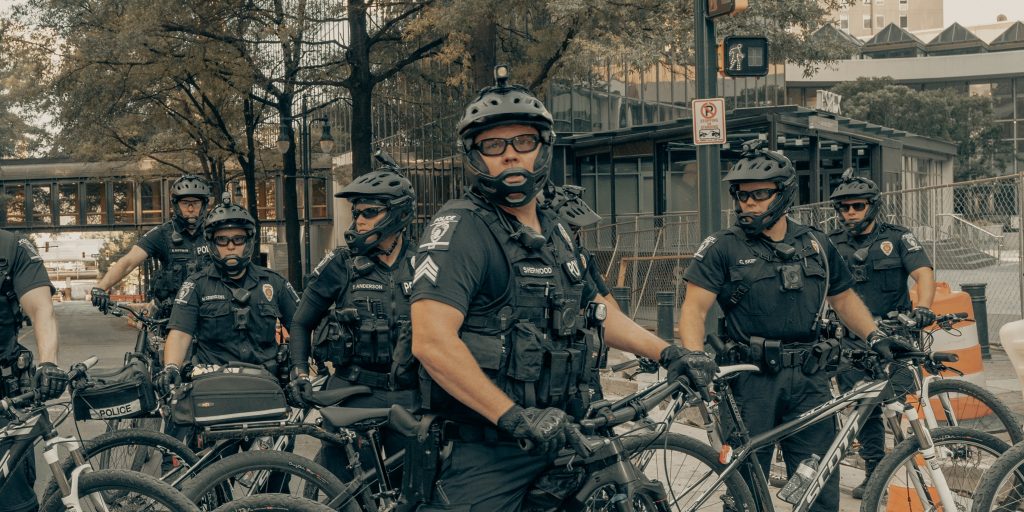Is defunding the police anti-law enforcement?
Nine months ago, the Dallas City Council unanimously approved a $517 million police operating budget. Now, as protests and demonstrations against police violence sweep the nation, council members are changing course, saying they’re open to defunding the department and reallocating resources to other city departments and services.
The Dallas City Council isn’t alone. Across the country, numerous cities are rethinking how resources are distributed, and the role police play in their communities. And while protest chants of “Defund the Police” might sound aggressively anti-law enforcement, the reality isn’t that clear cut.
So what does “Defund the Police” actually mean? In the most literal sense, it means taking money allocated to police and reallocating it elsewhere. The point, however, isn’t to be punitive or disruptive, Christy Lopez, a Georgetown Law professor and co-director of the school’s Innovative Policing Program wrote in an op-ed for the Washington Post. She argues it’s actually not as radical as it seems.
“Defunding the police means shrinking the scope of police responsibilities and shifting most of what government does to keep us safe to entities that are better equipped to meet that need,” Lopez wrote. “It means investing more in mental health care and housing, and expanding the use of community mediation and violence interruption programs.”
While this might sound idealistic, there’s at least one dramatic example of it working. Camden, N.J., a town infamous for its violent crime rates for decades, experienced a dramatic turnaround after reallocating police resources into the community, and ridding itself of a costly unionized force in 2012, Yahoo Finance reports. Instead, the city relied on a county community force that prioritized de-escalation and officer accountably.
“While the move doesn’t necessarily equate to “defunding” police as it’s being discussed today in a perfect sense, what ensued in Camden was more parallel to the thesis, as more resources were allowed to be shifted to other community-building initiatives in the following years,” Zach Guzman wrote for Yahoo. “Education reform and workplace development programs boosted the local economy and a more than $8 million program to remove blighted and abandoned properties helped eliminate areas once used by drug dealers.”
In one sense, calls to defund the police could just as accurately be calls to fund the programs that would make officer’s lives easier, Lopez wrote in her editorial.
“Police themselves often complain about having to “do too much,” including handling social problems for which they are ill-equipped,” Lopez penned. “Some have been vocal about the need to decriminalize social problems and take police out of the equation. It is clear that we must reimagine the role they play in public safety.”
Of course, not everyone agrees defunding police departments and reallocating their resources is a reasonable course of action. Jason Johnson, president of the Law Enforcement Legal Defense Fund (LELDF) and former deputy commissioner of the Baltimore Police Department and James Gagliano, a retired FBI supervisory special agent and LELDF board member argue in CNN op-ed that for substantive changes to occur, officers need to be “professionalized.”
“If we want to reduce incidents of police misconduct, improve police-community relations and make neighborhoods safer, we should “professionalize” the police, ensuring that officers are well-paid, appropriately trained and highly accountable, the co-authors wrote. “…While [investing in community initiatives is] important, those advocating for the most extreme end of the spectrum – fully dismantling policing as we know it – ignore the reality of its impracticality and risk, namely the fact that we would still need a reliable system that can prevent and investigate crimes.”
Washington D.C. Police Chief Peter Newsham agrees that defunding a police department would end up having the opposite effect the movement’s proponents desire. According to DCist, the chief said on The Kojo Nnamdi Show, that underfunded police departments would result in more inappropriate use of force cases.
“I would caution lawmakers to be very careful moving forward,” Newsham said on the radio show. “The number one thing that contributes to excessive force in any police agency is when you underfund it. If you underfund a police agency, it impacts training, it impacts hiring, it impacts your ability to develop good leaders.”




















